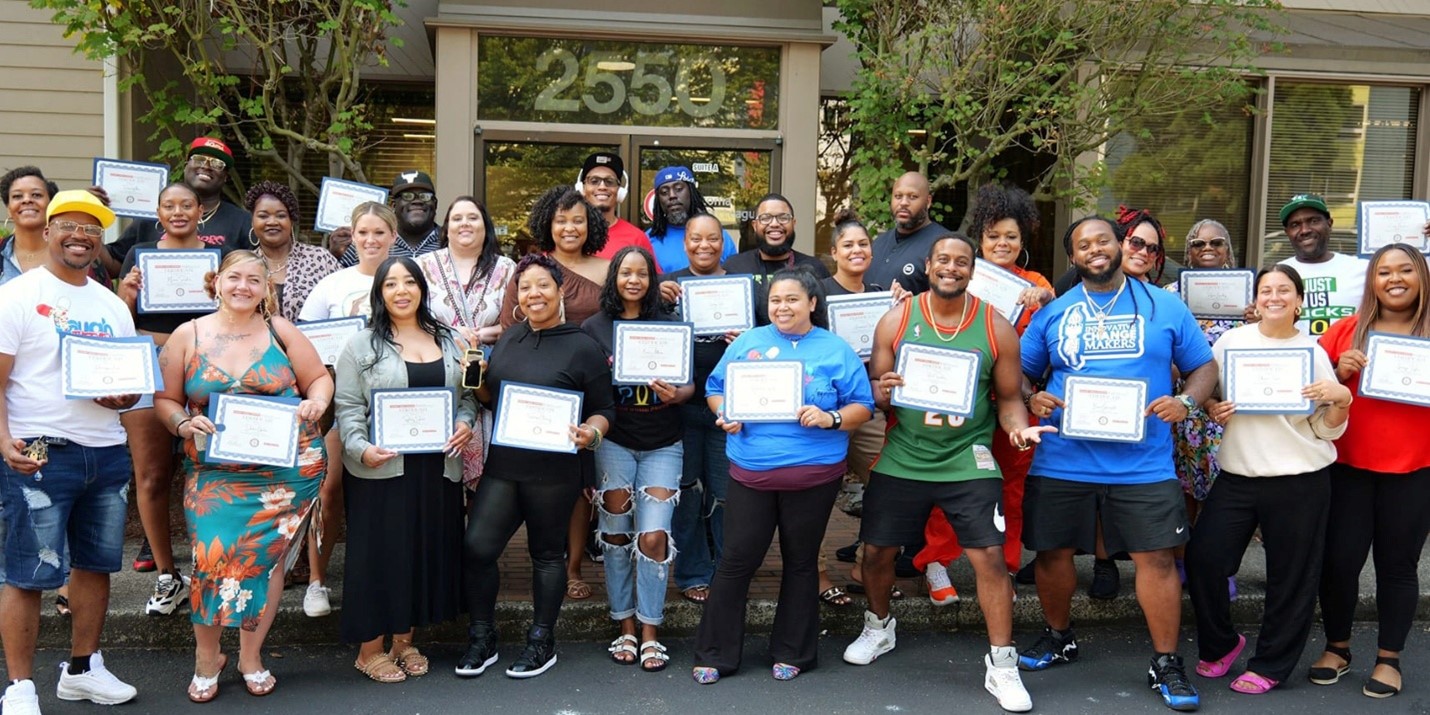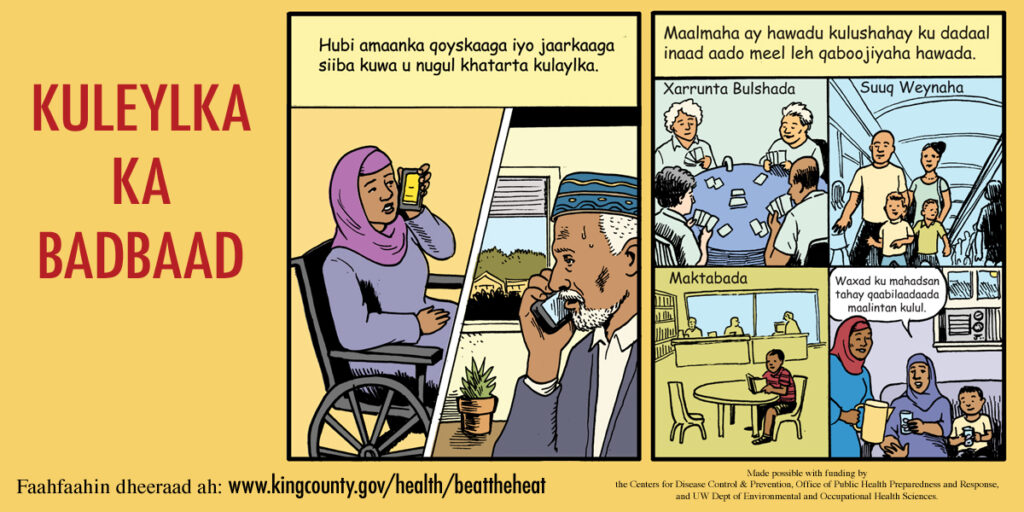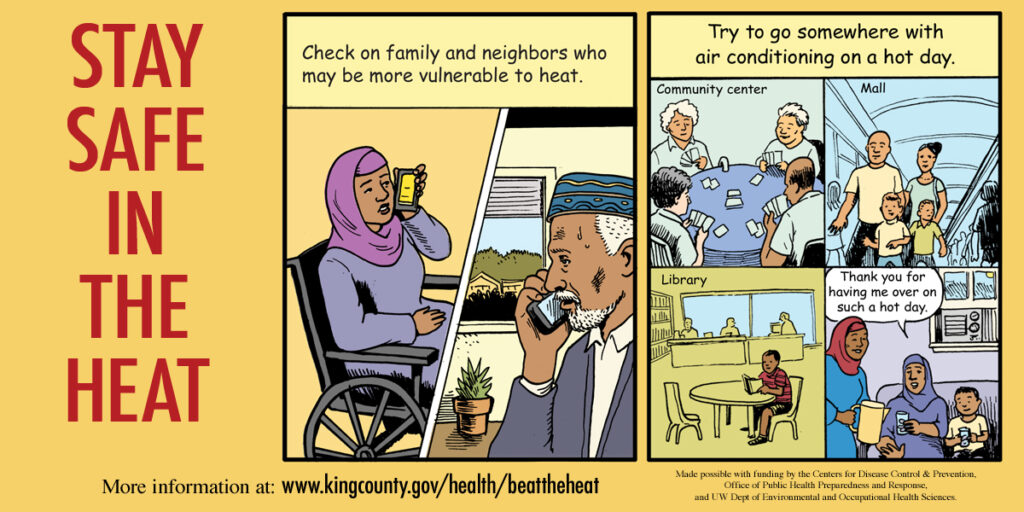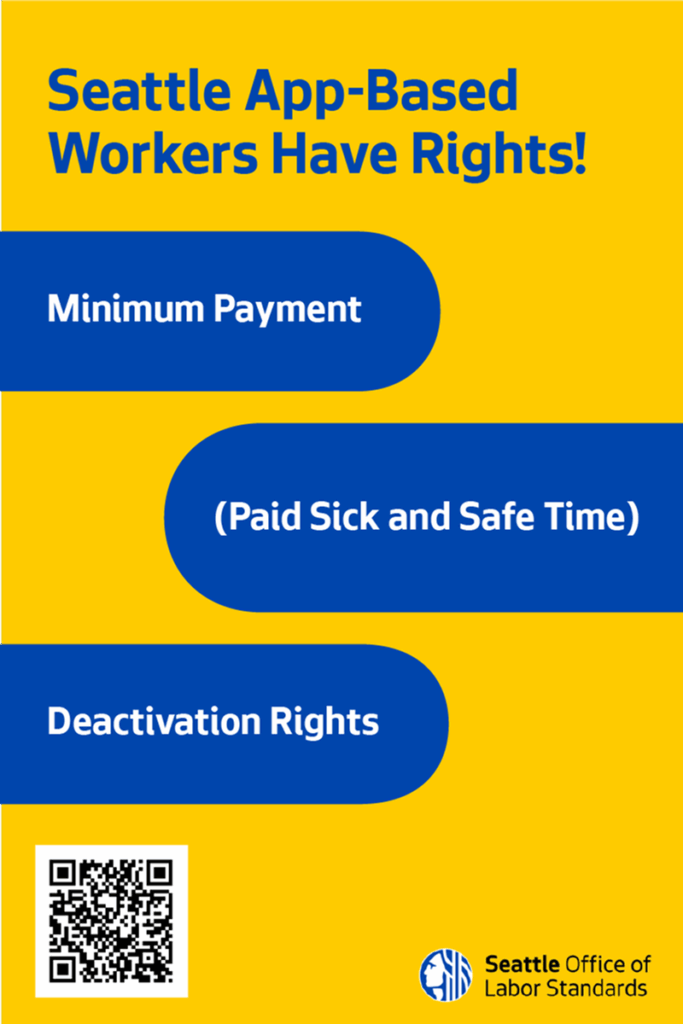
By Lynda Jensen for Runta News
Photo credit: Northwest Credible Messenger
How Peer Certification is Transforming Behavioral Health Support
Like many stylists, Aisha Ellis cares for her community while enhancing the beauty of their hair. Recent peer-counselling and healing-centered engagement certification allow the Seattle-based salon owner and stylist to connect with her clients on a deeper level.
“My client said, ‘I know you were listening because you responded to all the things I said,’ and that means a lot to me,” Ellis explained. “It has been a blessing to be a support in this way.”
In barbershops and beauty salons across Washington, a deliberate change in community mental health is taking place. Northwest Credible Messenger (NWCM), led by Jason Clark and Khalia Williams-O’Neal, launched an innovative program that recognizes what communities have long known: Barbershops and beauty salons offer familiar, nonthreatening environments where conversations about well-being occur.
With funding from the Community Reinvestment Project (CRP), NWCM is transforming these informal support networks into recognized behavioral health resources. NWCM provides barbers and beauticians with professional certifications in peer counseling and healing-centered engagement.
How the Program Works
The program initially planned to certify 80 participants across six counties: King, Pierce, Clark, Yakima, Snohomish and Spokane. Now, it’s trained more than 100 barbers and beauticians and has a growing waitlist.
The program operates through county hubs, which are trusted community partners who identify barbers and beauticians already engaged in supporting their communities. These professionals are then invited to participate in a two-part certification process.
First, participants complete certified peer counseling training, a professional certification that doesn’t expire. Then they participate in a healing-centered engagement training, earning a national certificate in this culturally responsive peer support approach.
Understanding the financial barriers many face when pursuing professional development, NWCM compensates participants with $2,000 for each training they complete. Once certified, these professionals can provide formal peer support services in their shops, offering resource navigation and creating paths to additional help when needed. They can refer clients directly into the program, extending the network of care.
Program success stories highlight the training’s versatility. In Pierce County, one partner is working with their entire hub to provide peer support to 50 young people at a middle school, teaching them about healing, entrepreneurship, and barbering skills. Another partner, Corey at Changes Barbershop in Lakewood, has been able to expand his fatherhood groups from “a shoestring budget” to a fully supported program with food and referral networks.
NWCM is also partnering with organizations like the Shades of Motherhood Network in Spokane, who train doulas using the same peer counseling framework.
One participant, a teacher connected with Shades of Motherhood, saw immediate applications for the school system, highlighting the potential for this model to scale across multiple community settings.
Black Community Planning
CRP’s Barber and Beauty Shop Peer Navigation program was an idea initiated in Black communities in 2019. Citizens United, the Brother’s Keepers, and Project Peace, working to supporting youth impacted by violent crime in Tacoma, understood that barber and beauty shops were already cultural anchors in communities of color, and the perfect place to begin building something new.
“Back then, I was meeting with barbers across the city. We talked about opportunities to really address the social issues in our community,” shared Korbett Mosesly, managing director of the Community Reinvestment Project. “People of all ages were coming into their shops, struggling with mental health issues, dealing with housing insecurity, looking for employment, and sharing what was going on in their lives. Together, we co-created a program that would give barbers and beauticians the tools and training they needed to create support spaces, where a deeper kind of healing could happen. Because we had that kind of community buy-in, Commerce funded Northwest Credible Messengers to launch the certification program across the state.”
Breaking the Stigma of Mental Health
The program addresses a critical need in communities where behavioral health has been stigmatized. Although younger generations may be more open to discussing mental health, many communities still face barriers to seeking support.
Williams-O’Neal noted the profound shift she’s witnessed: “Working with folks that have been in community for years — longer than I have been alive — and might have at one point been a bit more hesitant to the idea of behavioral health services, to see them in these trainings really receptive and reflective in their experiences and how it can benefit their shops . . . that’s when I start to feel like, ‘Oh yeah, we’re doing something.’”
Building Sustainable Systems for Long-term Impact
NWCM approaches the project with sustainability in mind. “Our job as capacity builders is not to park ourselves in this space,” Clark said. “It’s [to] develop a structure that our community hubs can manage moving forward.”
The organization is already considering the next steps: Turning the program into a formal apprenticeship that leads to Medicaid billing capabilities so the work can continue even if additional grant funding is not renewed.
This focus on sustainability reflects a core value of the program: Creating lasting change rather than temporary interventions. Williams-O’Neal anchored the work in the question: “How do we have what we’re doing now set us up for the future and really be something that is sustainable?”
A Model for Culturally Responsive Care
The Barber and Beauty Shop Behavioral Health Project demonstrates how culturally responsive approaches can address long-standing gaps in behavioral health services. By building on existing community strengths, the program creates authentic pathways to healing that resonate with the communities they serve.
As demand continues to grow, NWCM is working with the Department of Commerce to expand its reach, enroll more participants, and connect them to additional Commerce-funded resources such as debt reduction, homeownership assistance, and tax services.
With more than 537 people enrolled, conversations that once happened informally are now recognized, supported, and expanded through professional training and certification. The result is a growing network of peer support throughout Washington that meets people where they are, both physically in trusted community spaces and emotionally in culturally resonant ways, creating pathways to healing that will benefit communities for generations to come.
For more information, Northwest Credible Messenger’s website









